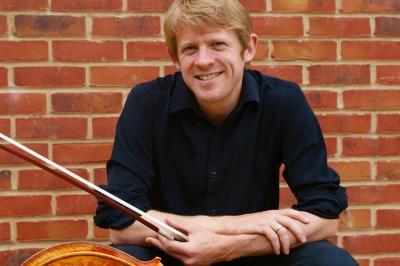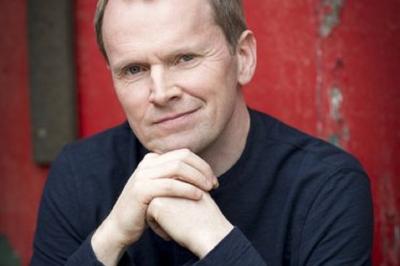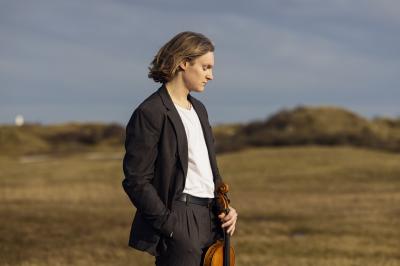Elmore String Quartet
In the recent climate, any group of young musicians who have weathered Covid restrictions, a change of personnel and of group name and have gone on the win a prestigious Tunnell Trust award begin to look very much like heroes. Add to this struggling through snowy conditions to offer a challenging programme to their Music Nairn audience, and the Elmore Quartet is at risk of attaining legendary status. It is a pity that, whether due to the weather or the demands of the music on offer, this audience was smaller than usual, but no less enthusiastic.
Anton Webern is remembered as the most uncompromising member of the New Vienna school, whose serial music has largely failed to enthuse a wider public. The pre-serial Webern of 1905 turns out to be a young man in love, newly returned from a walking holiday with his beloved, who pours out passionate, rapturous music in the manner of Richard Strauss. The four young men of the Elmore Quartet seemed ideally placed to empathise with this young-man's music, and gave us a bravura performance of this virtually unknown piece. Just occasionally there were hints of pre-serial Schoenberg, Webern's teacher and the leading light of New Vienna serialism, as well as tantalising pre-echoes of Webern's own later oeuvre. I find it fascinating to hear
just how good the New Vienna composers were at writing high romantic music, before they all so radically turned their back on the style.
To find yourself writing your final string quartet in your final months, in Venice and referencing your own operatic setting of Death in Venice talks to a triumphantly curated life, and Benjamin Britten's third String Quartet op. 94 is often seen as his musical farewell to life. Predictably unpredictable and mercurial, Britten composes music with passages of heart-stopping beauty, juxtaposed with sobering drafts of irony, parody and sheer off-handed detachment. At least two of the five movements feature disconcerting throw-away endings, but in the course of each short episode the wily Britten conjures pure magic. This is difficult music to bring off, and the Elmores displayed impressive technique, impeccable ensemble and a thoroughly persuasive
musicality.
The late quartets of Beethoven represent the Himalayas of the genre - visionary music composed by a deaf, infirm and aged composer. I still grapple with these pieces, but the central movement of op. 132 is one of my sunlit uplands, a movement of utter serenity, into which the composer poured all his gratitude for his recovery from serious illness. The Elmores found the perfect tempo for this other-worldly music, and allowed one of Beethoven's most uncomplicated utterances to speak for itself – a masterly performance. If some of the other movements sound faltering even trite by comparison, this is maybe the inevitable consequence of viewing the world from the summit of Everest. Holding this intentionally disparate bag of tricks together is no
mean feat, but again the Elmores had the measure of this challenging piece, and we were rewarded by finding among the gauche modulations and occasionally trite phrases, genuine gems of Beethovenian genius.
Forthcoming Events






